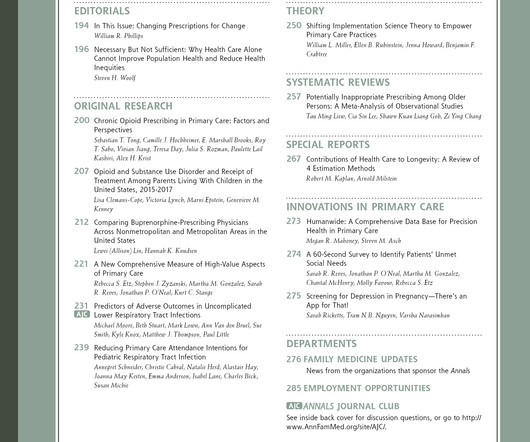Access to health care and services for the Deaf: A scoping review of reviews [Health care services, delivery, and financing]
Annals of Family Medicine
NOVEMBER 20, 2024
A growing number of research has been published on the subject, but the Deaf community remains underserved in health care and under-represented in health research. A patient partner from the Deaf community collaborated on each step of this project. No reviews mentioned involving members of the Deaf community. Popay et al.’s



















Let's personalize your content